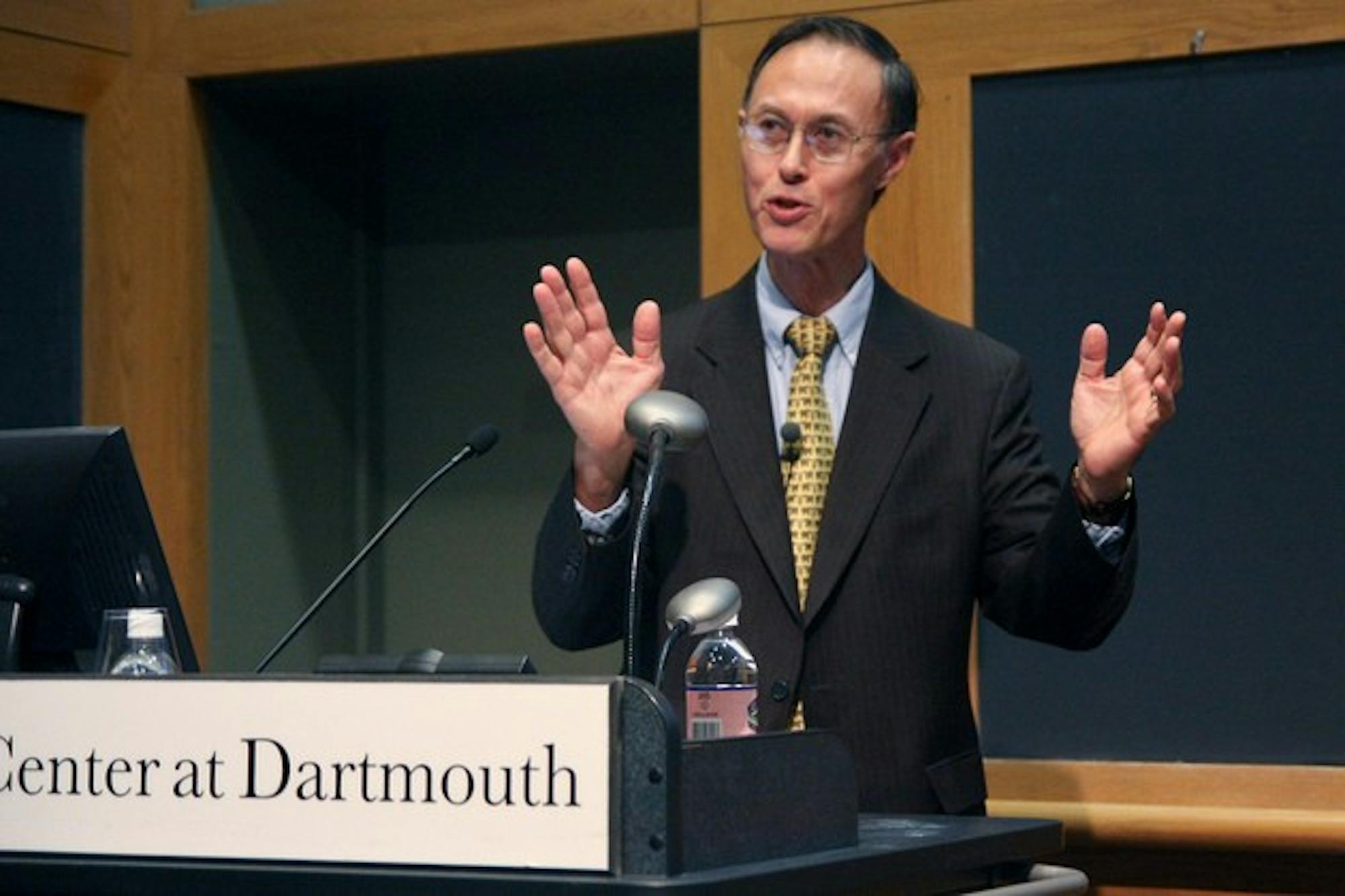The success of military defense policies depends in part on good resource management, David Chu, former President George W. Bush's undersecretary of defense for personnel and readiness, said in a Tuesday lecture at the Rockefeller Center. In his lecture, "The Challenge of Managing Defense," Chu discussed the problems associated with developing effective defense strategies.
"Defense is a big enterprise," Chu, who is now president and CEO of the Institute for Defense Analyses, said in an interview with The Dartmouth prior to the event. "If you thought of it as a country, it would be somewhere in between the size of Austria and Australia."
Chu stressed the importance of knowing how best to utilize military resources, the decision process for which, he said, is based on precedents set more than 50 years ago.
"There is the famous quotation that, We are all prisoners of some long ago professor,' and the military is a living example of this phenomenon," he said.
Various policies passed during the 1950s shaped the resource allocation process into three theoretical tiers looking first at objectives, second at what is needed to achieve those objectives, and finally, at a budget, Chu said.
In reality, however, budgetary concerns often take precedent, Chu said.
"We often actually start at the other end," he said. "There is a political decision of how much we are willing to actually afford for defense."
This can create difficulties in the decision-making process, Chu said.
"You don't get to change the objectives, and you don't get to change the budget," he said. "Somehow in between you have to make it all come out right."
That makes guidelines, like the National Security Strategy, particularly important in seeking to clearly establish the country's military objectives, Chu said. Many aspects of these objective-setting guidelines, however, are left over from previous administrations, Chu said, limiting the autonomy of current leaders.
Chu also underscored the need to manage the people within the defense system, noting that leaders must determine how to best administer a volunteer military force, federal workers and private contractors, he said.
Managing the country's investments in defense, especially in weapons, is also key, Chu said.
Chu described the current debate about such weapons development, contrasting the "classic" model of gradual development with a system where specific needs are more urgently addressed. Secretary of Defense Robert Gates has utilized the second model in conflicts, including the war in Iraq, with mixed results, Chu said.
The "ultimate issue" in managing defense, however, is in managing the way military forces are used, Chu said.
In the United States, he said, civilians control the military forces.
Because the military cannot take direct action without civilian orders, Chu said, public opinion carries significant weight.
"If you lose public support, there's a whole set of issues in front of you," Chu told The Dartmouth.
Chu said that public support for a specific conflict is not necessarily critical as long as the public supports the military as an institution. Wars must never, however, be so unpopular as to degrade support for the military to unsustainable levels.
That point has not yet been reached in the current conflicts in Iraq and Afghanistan, he said.
"[This was] true in Vietnam, where people were reluctant to wear their uniform in public," Chu said. "That has not happened in this set of wars."
U.S. involvement in Iraq and Afghanistan has, however, generated public debate about current and future military strategy, Chu said.
While politicians may be more willing to support a given strategy following such debate, disagreement at home also means that troops may not receive clear direction.
"It's not helpful in an operation like this to appear to waver," Chu said. "It could seem that way. I don't think that was the intention."




